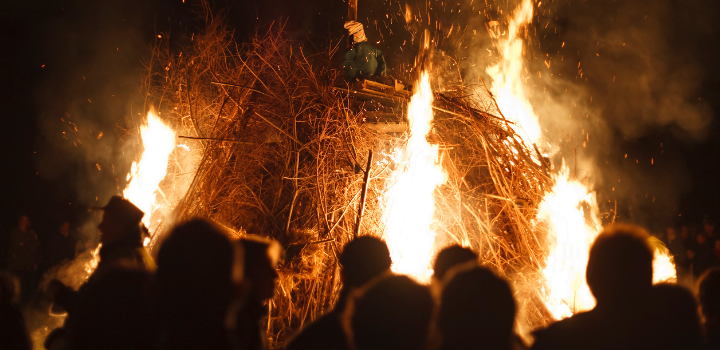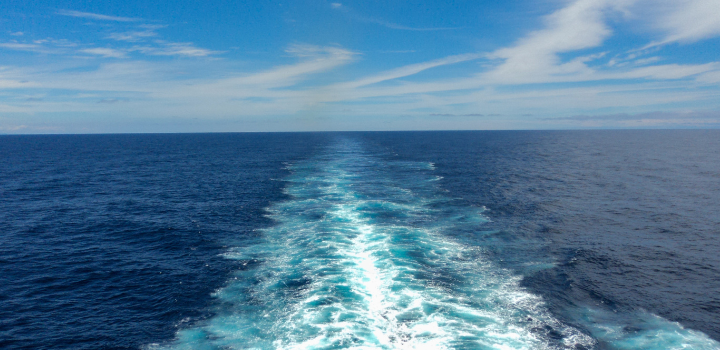Professor Nicholas Vincent gets first glimpse of ‘rediscovered’ original Magna Carta
By: Communications

Celebrations, including a day-long academic conference, marked the debut of an authentic 1300 Magna Carta at Harvard Law School.
Confirmed as an original after King’s College London's Prof David Carpenter flagged HLS MS 172 with his fellow Magna Carta expert, UEA’s Prof Nicholas Vincent, the document was shown to the pair for the first time in June, at a series of Harvard University events.
“We’ve got a document that belonged to one of the key figures in the antislavery campaign that then belonged to a man who defended Malta against the powers of fascism in the Second World War. What better provenance could you possibly invent?” said Prof Vincent, a Professor of Medieval History in UEA’s School of History.
The Harvard Law School Library bought the document in 1946 for $27.50, according to the library’s accession register. The auction catalogue described the manuscript as a ‘copy…made in 1327…somewhat rubbed and damp-stained'. It had been purchased a month or so earlier by the London bookdealers Sweet & Maxwell, via Sotheby's, from an RAF war hero for a mere £42.
Professors Carpenter and Vincent determined it is actually one of only seven from King Edward I’s 1300 issue of Magna Carta that still survive.
Through further investigation, the professors believe the document could be a lost Magna Carta once issued to the former parliamentary borough of Appleby in Westmorland, England.
Until it went to auction in 1945, the document had belonged to First World War flying ace, Air Vice-Marshal Forster ‘Sammy’ Maynard CB. Forster Maynard, it seems, inherited archives from Thomas and John Clarkson, leading campaigners against the slave trade from the 1780s onwards.
In the early 1800s Clarkson retired to the English Lake District, where he became a friend both of English poet William Wordsworth, and of local landowner, William Lowther, hereditary lord of the manor of Appleby.
From Appleby via the Lowthers, the Clarksons and Forster Maynard, Harvard's Magna Carta has followed an extraordinary route, with the cause both of liberty and of slavery's abolition at the heart of that journey.
Considered a key step in the evolution of human rights against oppressive rulers, Magna Carta has formed the basis of constitutions around the world. It was influential in the founding of the United States, from the Declaration of Independence to the framing of the U.S. Constitution and the subsequent adoption of the Bill of Rights.
The conference at Harvard included panels on the historical significance of the original Magna Carta and the importance of library digitalization and preservation.
Along with Professors Vincent and Carpenter, the conference included Harvard University experts on library technology and the preservation of historical documents, Vice Dean for Library and Information Resources Jonathan Zittrain and Assistant Dean for Library and Information Services Amanda Watson; and Harvard legal history experts, Professors Charles Donohue and Elizabeth Papp Kamali.
The panel debated the discovery’s impact on Harvard, the law, and the polity. What does it mean to be an ‘original’ Magna Carta? What was this ‘Great Charter’? What is its relevance today?
It was clear the British experts found the experience poignant and moving.
Prof Carpenter said the manuscript is “very, very evocative and powerful.
“Although I can look at all your lovely copies in the statute books, I don’t think any of them have got the emotive power or the authority of an actual original, because they all derive from the original.”
Prof Vincent, who has spoken previously about the contemporary resonance of holding the powerful to account, spoke on that theme during his visit to the United States.
“Why are tyrants the way they are?” asked Vincent. “Well, they do not observe the law. They do not allow the law to be read, and they ignore accepted custom. Again, it’s extraordinary how current some of those debates can be seen.”
Related Articles

What new Game of Thrones prequel gets right about courage, honour, horsemanship and the power of bling
If Game of Thrones seems obsessed with bling, chivalry, honour and horsemanship – that’s because the real medieval world was too, according to the prequel's historical advisor Dr Hugh Doherty.
Read more
Q&A with Dr Jessica Sharkey: The legend of Guy Fawkes and Bonfire Night
As the nation gears up for the dramatic finale of The Traitors UK tonight, Dr Jessica Sharkey from the School of History and Art History at UEA, answers some questions on the history of Guy Fawkes - the man whose name has become synonymous with treason.
Read more
UEA maritime historians look back on 100 years of the Shipping Forecast
The Shipping Forecast has inspired art, poetry and music, saved lives, and soothed the nation to sleep – according to UEA maritime historians Prof Claire Jowitt and Dr Benjamin Redding.
Read more